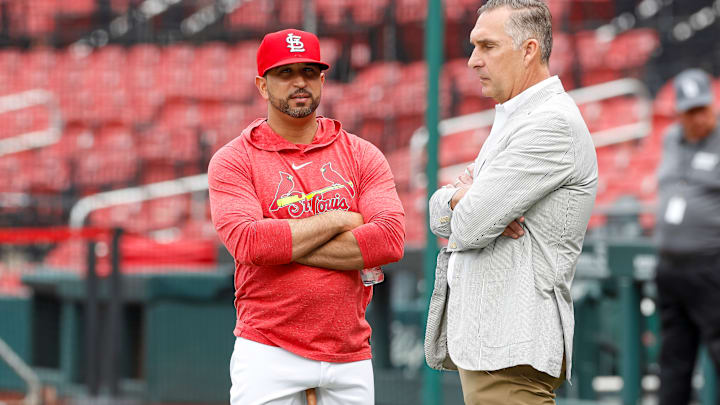Massive trades and salary dumps will be made
This change almost goes hand-in-hand with the first change. In order to play those young players, roster spots must be cleared up. That would come in the form of trimming the excess "fat" on the roster. Players like Miles Mikolas, Steven Matz, and possibly Nolan Arenado have been restricting the team financially these past two seasons without producing reciprocally on the field.
Next year, Mikolas is owed $18.3 million, Matz is on the books for $11 million, and Arenado will cost the team $21 million. That's a total of just over $50 million owed to only three players next year. It's very unlikely that any of the three players will return to their former selves next year, so swallowing some money -- and pride -- may suit the organization best.
Trading these players and their attached salaries won't be easy; the Cardinals will have to also send over some cash in these trades to make up for the imbalance that their onerous contracts create. This isn't a strategy that the organization has employed often recently, but if the roster needs a reset, this is the best way to go about it.
By trading these pricey veterans, the Cardinals will be able to direct the money in a more fruitful way. Proven players who are much younger are available this offseason, especially from a pitching perspective. Nathan Eovaldi could opt out of his contract after vesting a player option, and players like Corbin Burnes, Max Fried, Jack Flaherty, and Shane Bieber will also be available.
Clearing out these players from the roster opens up playing time for young guys like Tink Hence, Cooper Hjerpe, Quinn Mathews, Michael McGreevy, and even Thomas Saggese next year.
The Cardinals have been insistent on rolling out a veteran team these last two years. That plan hasn't worked, and the expensive players who haven't been producing this past during this time period should be traded.
